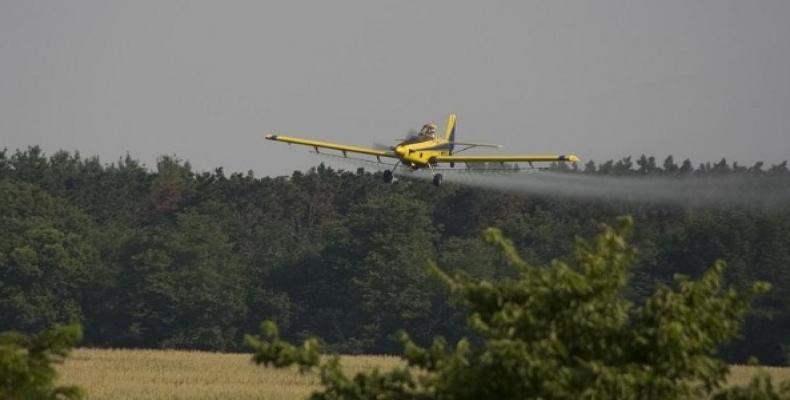Bogota, April 28 (teleSUR-RHC)-- Colombia's Health Ministry is recommending the immediate suspension of aerial spraying of a cancer-causing herbicide used to eradicate cocaine crops, according to reports on Monday.
The World Health Organization's research arm, the International Agency for Research on Cancer, recently reclassified glyphosate, the world's most widely produced herbicide, as “probably carcinogenic to humans.” Glyphosate is also the herbicide used in efforts to eradicate cocaine crops as part of the highly-controversial Plan Colombia, which has seen billions in U.S. military aid sent to the South American country, purportedly to fight drug trafficking.
"Under its obligation to protect public health and obeying the orders issued by the Constitutional Court, the Ministry recommends the immediate suspension the use of glyphosate in aerial fumigation operations to eradicate illicit crops," said a letter signed by Minister of Health Alejandro Gaviria.
The Colombian Constitutional Court issued a ruling in 2014 that states that a precautionary principle should be exercised whenever credible health or environmental risks are apparent, even if a definitive risk cannot be proven. The Health Ministry's recommendation does not have an immediate effect, as their letter now rests in the hands of the Justice Ministry.
Due to its connection to the aid received through Plan Colombia, President Juan Manuel Santos is also expected to respond. According to reports, ending the illicit crop eradication program could jeopardize the Plan Colombia agreement with the United States.
Numerous advocacy organizations have previously called on the U.S. and Colombian governments to cease use of the herbicide. According to the Washington Office on Latin America, approximately 4 million acres of land in Colombia were sprayed with herbicide between 1996 and 2012 to kill coca plants, whose leaves are also used to produce cocaine. They also state that Colombia is the only coca-producing country to use aerial spraying, whereas other countries rely on manual eradication.
Cultural Survival, a non-government organization that focuses on the rights of indigenous peoples, argues that aerial spraying of herbicides has an adverse effect on indigenous peoples in Colombia. They state that the spraying pollutes their crops and water, threatening their livelihood and pushing them out of their traditional territories.


